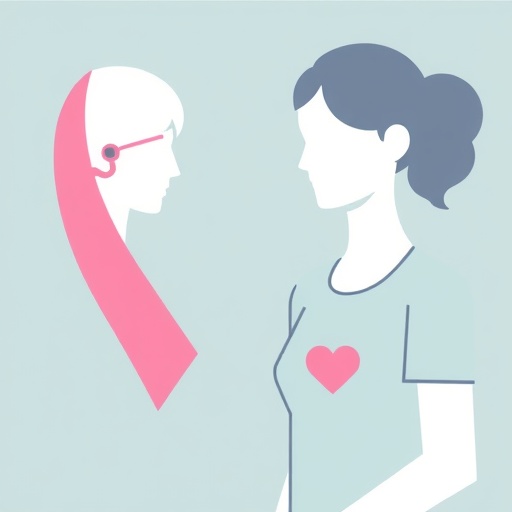In a groundbreaking study published in the International Journal for Equity in Health, researchers have turned their lens on a critical, yet often overlooked, determinant of healthcare quality: language barriers. Titled “Language matters: assessing the role of language barriers in patient-reported experiences of breast cancer patients in Germany,” this investigation by Lee, Pfaff, and Ansmann dives deep into how linguistic challenges shape the lived experiences of breast cancer patients navigating the German healthcare system. Their findings reveal profound implications not only for patient satisfaction but also for health outcomes and equity in care delivery.
The study addresses a vital issue at the intersection of language, culture, and medicine. Breast cancer, one of the most prevalent cancers worldwide, demands precise communication between patients and healthcare providers. Effective communication is essential for accurate diagnosis, treatment adherence, shared decision-making, and psychological support. Despite this, many healthcare systems remain unprepared to accommodate non-native speakers adequately, leading to gaps in understanding that may jeopardize patient care.
Germany’s healthcare landscape, enriched by a significant immigrant population, provides a particularly salient setting for this research. The study deployed a robust methodology grounded in patient-reported experience measures (PREMs), systematically examining how language proficiency influenced patients’ perceptions across various care dimensions. These included doctor-patient communication quality, information clarity, emotional support, and overall satisfaction.
One of the study’s core discoveries underscores that patients with limited proficiency in German reported notably poorer experiences. These patients frequently encountered difficulties in expressing symptoms, understanding medical advice, and feeling emotionally supported. The research highlights that such barriers did not simply reflect surface-level inconveniences but were intimately tied to the clinical trajectory — from diagnosis to treatment planning and follow-up care.
Technical analysis in the paper goes beyond descriptive statistics, utilizing multivariate models controlling for socioeconomic factors, age, and tumor stage, lending robustness to the assertion that language barriers independently impact patient experiences. This nuanced approach delineates language as not just a proxy for other disadvantages but as a standalone impediment to equitable healthcare.
Further, the study outlines mechanisms by which language barriers permeate patient-provider interactions. Doctors’ reliance on jargon, lack of professional interpreters, and time constraints exacerbate communication gaps. Where interpretation services were unavailable or inadequate, patients resorted to informal interpreters, such as family members, raising concerns about confidentiality, accuracy, and emotional burden.
One of the most striking facets explored is the psychological toll on patients. Feelings of isolation, anxiety, and mistrust in the healthcare system were markedly higher among linguistically challenged patients. These emotional dimensions play a critical role in cancer care, where mental resilience significantly affects treatment adherence and recovery.
Importantly, the authors argue that language assistance is not merely a convenience but an ethical imperative integral to patient rights and quality care standards. The study advocates for systemic policy measures, including mandating professional interpretation, training healthcare professionals in cultural competence, and integrating language support in institutional protocols.
From a technical perspective, the research employed state-of-the-art patient experience instruments validated in multiple languages, ensuring reliability in cross-linguistic data collection. The sample size was sufficiently powered to detect statistically significant disparities, and qualitative interviews enriched quantitative findings, offering vivid insights into lived experiences.
The implications of this study ripple beyond Germany’s borders, speaking to global health equity challenges. Immigrant and minority populations worldwide confront similar barriers that compromise cancer care quality. As such, the findings echo a universal call to action for health systems to incorporate language-sensitive practices as foundational to equitable healthcare delivery.
Intriguingly, the authors envision integrating digital health tools equipped with real-time translation capabilities as promising adjuncts to human interpreter services. Artificial intelligence-driven applications have the potential to bridge communication gaps promptly, though they emphasize these technologies must complement, not replace, personalized human interaction.
Their work also foreshadows future research avenues, such as longitudinal studies examining how early intervention in language assistance affects long-term outcomes, including survival rates and quality of life. Additionally, comparative analyses across various linguistic minority groups could elucidate culturally specific barriers and tailored interventions.
The study recognizes that tackling language barriers requires investment in healthcare infrastructure and workforce development. Proposed recommendations include expanding interpreter services, enhancing training curricula for healthcare providers, and implementing continuous monitoring of patient experience data stratified by language proficiency.
By rigorously quantifying the consequences of linguistic obstacles in breast cancer care, this research redefines language proficiency as a critical social determinant of health. It challenges healthcare systems to transcend conventional medical paradigms and embrace inclusivity that respects linguistic diversity as fundamental to healing.
In sum, “Language matters” is a timely and compelling investigation that not only exposes the silent struggles of non-native speakers in oncology settings but also provides a scientifically grounded roadmap to mitigate these challenges. Its publication marks a significant stride toward fostering a more equitable, patient-centered healthcare environment in Germany and beyond.
This study serves as a crucial reminder that equitable healthcare must go hand in hand with effective communication. Addressing language barriers is not ancillary but central to achieving excellence in cancer care and upholding the dignity and rights of every patient, regardless of their mother tongue.
Subject of Research: The role of language barriers in shaping patient-reported experiences among breast cancer patients in Germany.
Article Title: Language matters: assessing the role of language barriers in patient-reported experiences of breast cancer patients in Germany.
Article References:
Lee, S., Pfaff, H. & Ansmann, L. Language matters: assessing the role of language barriers in patient-reported experiences of breast cancer patients in Germany. Int J Equity Health 24, 332 (2025). https://doi.org/10.1186/s12939-025-02693-y
Image Credits: AI Generated




